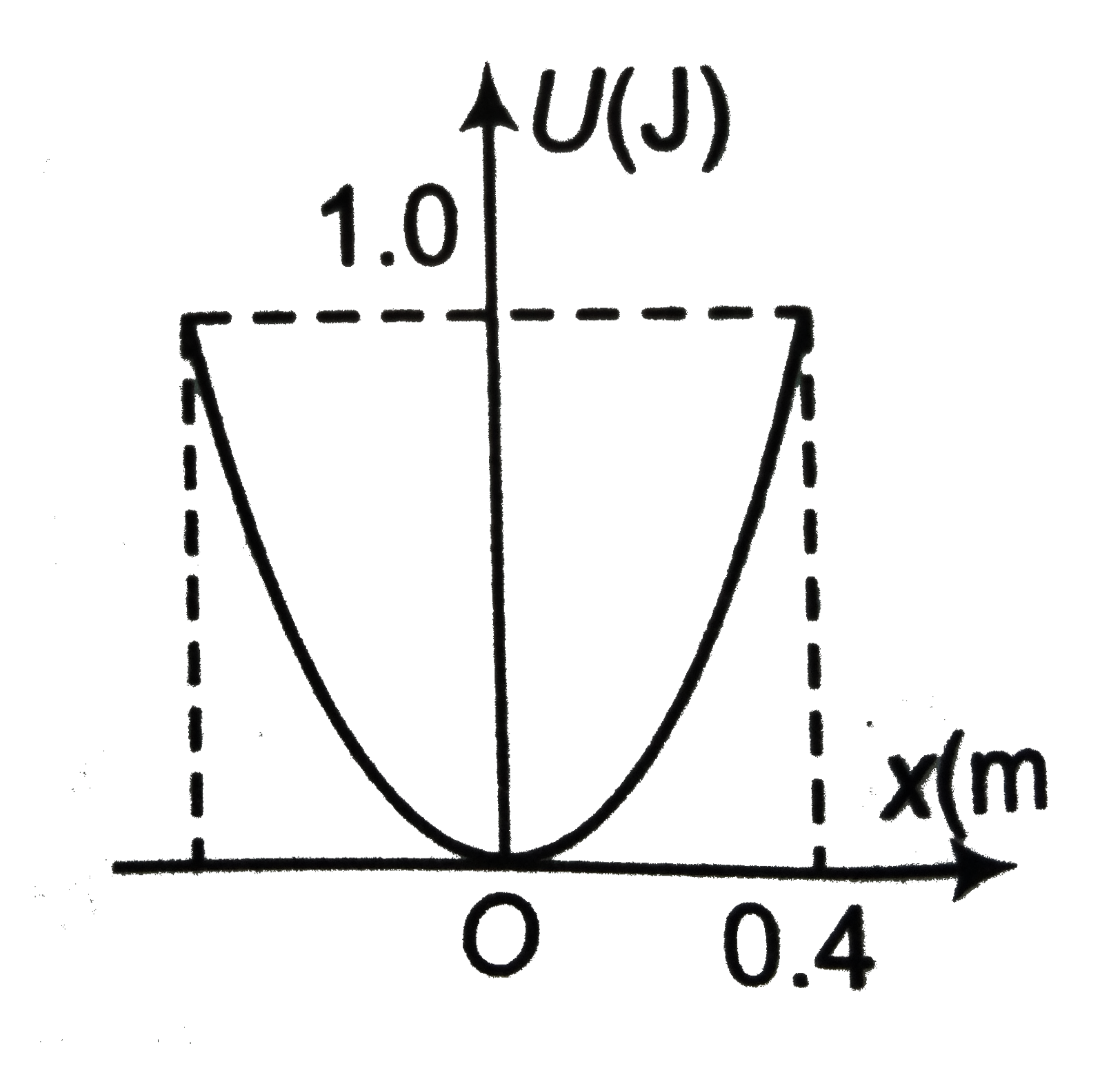The total mechanical energy of a spring mass system in simple harmonic motion is E=12mω2A2. Suppose the oscillating particle is replaced by another particle of double the mass while the amplitude A remains the same. The new mechanical energy will
become 2E
become E/2
become √2E
remain E
The correct Answer is:D
E=12mω2A2=12m(√km)2A2
E=12kA2
Total energy depends on k of spring and amplitude A. It is independent of mass.
Topper's Solved these Questions
- OSCILLATIONS AND WAVES BOOK - MTG GUIDECHAPTER - OSCILLATIONS AND WAVES EXERCISE - NEET CAFÉ TOPICWISE PRACTICE QUESTIONS
200 Videos
- OSCILLATIONS AND WAVES BOOK - MTG GUIDECHAPTER - OSCILLATIONS AND WAVES EXERCISE - CHECK YOUR NEET VITALS
25 Videos
- MOTION OF SYSTEM OF PARTICLES AND RIGID BODY BOOK - MTG GUIDECHAPTER - MOTION OF SYSTEM OF PARTICLES AND RIGID BODY EXERCISE - AIPMT / NEET (MCQs)
37 Videos
- PHYSICAL WORLD AND MEASUREMENTBOOK - MTG GUIDECHAPTER - PHYSICAL WORLD AND MEASUREMENTEXERCISE - AIPMT / NEET MCQ
14 Videos
Similar Questions
The total energy of a partical executing simple harmonic motion of period 2π secon is 10,240ert. The displacement of the particle at π/4 second is 8√2cm. Calculate the amplitutde of motion and mass of the particle
View SolutionFind the mechanical energy of a block-spring system with a spring constant of 1.8 N/cm and an amplitude of 2.4cm.
View Solution
Knowledge Check
The total mechanical energy of a particle of mass m executing SHM with the help of a spring is E=(1/2)mω2A2. If the particle is replaced by another particle of mass m/2 while the amplitude A remains same. New mechanical energy will be :
A√2EB2ECE/2DEThe total mechanical energy of a particle executing simple harmonic motion is E when the displacement is half the amplitude of its kinetic energy will be
A3E4BECE2DE4When the potential energy of a particle executing simple harmonic motion is one-fourth of its maximum value during the oscillation, the displacement of the particle from the equilibrium position in terms of its amplitude a is
Aa/4Ba/3Ca/2D2a/3
When the potential energy of a particle executing simple harmonic motion is one-fourth of its maximum value during the oscillation, the displacement of the particle from the equilibrium position in terms of its amplitude a is:
View SolutionThe tota energy of a particle executing simple harmonic motion is 16J. What will be total energy of particle if amplitude is halved and frequency is douboled?
View SolutionA particle executes simple harmonic motion. The amplitude of vibration of particle is 2 cm. The displacement of particle in one time period is
View SolutionA particle of mass 2kg moves in simple harmonic motion and its potential energy U varies with position x as shown. The period of oscillation of the particle is

View SolutionThe total mechanical enegry of a particle is E. The speed of the particle at x=(2EK)1/2 is (2Em)1/2. Find the potential energy of the particle at x :
View Solution
